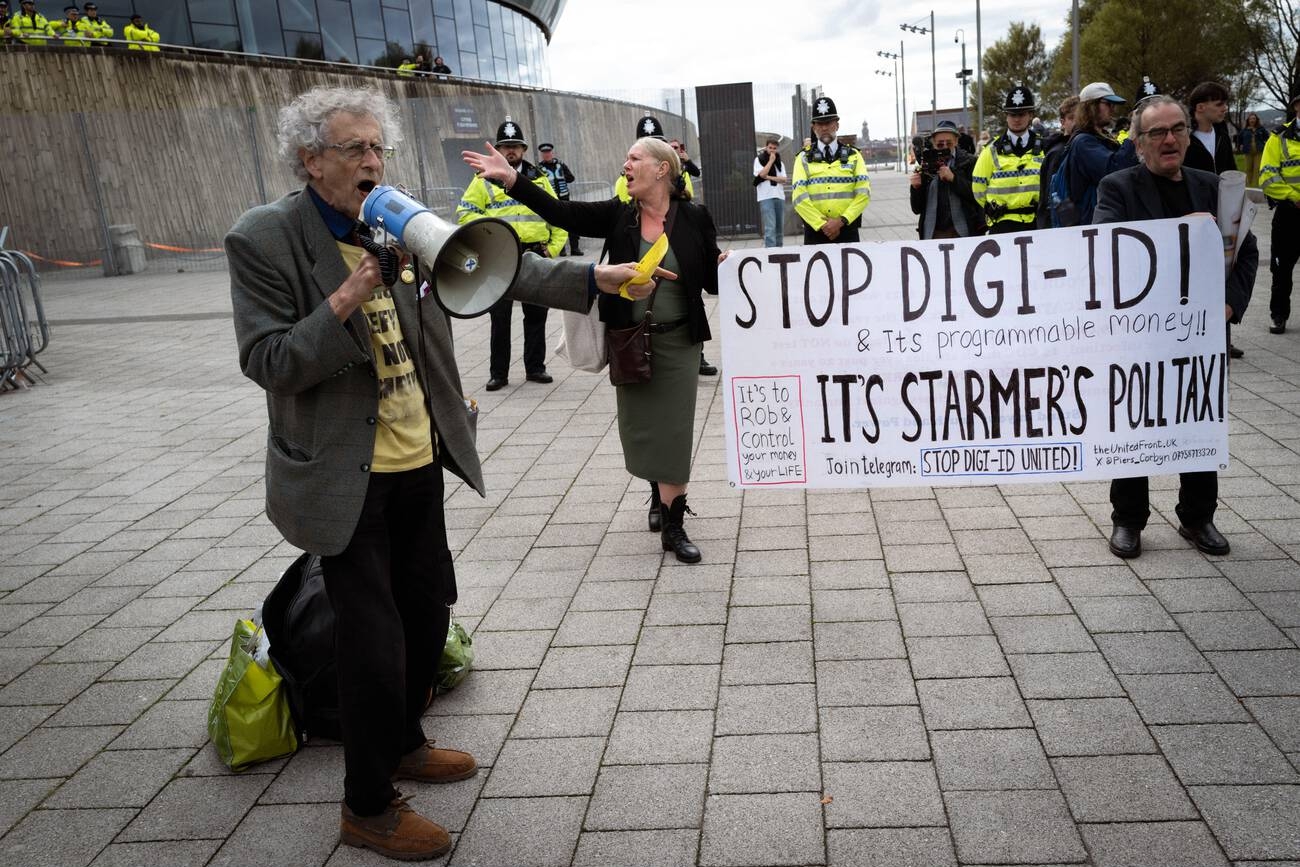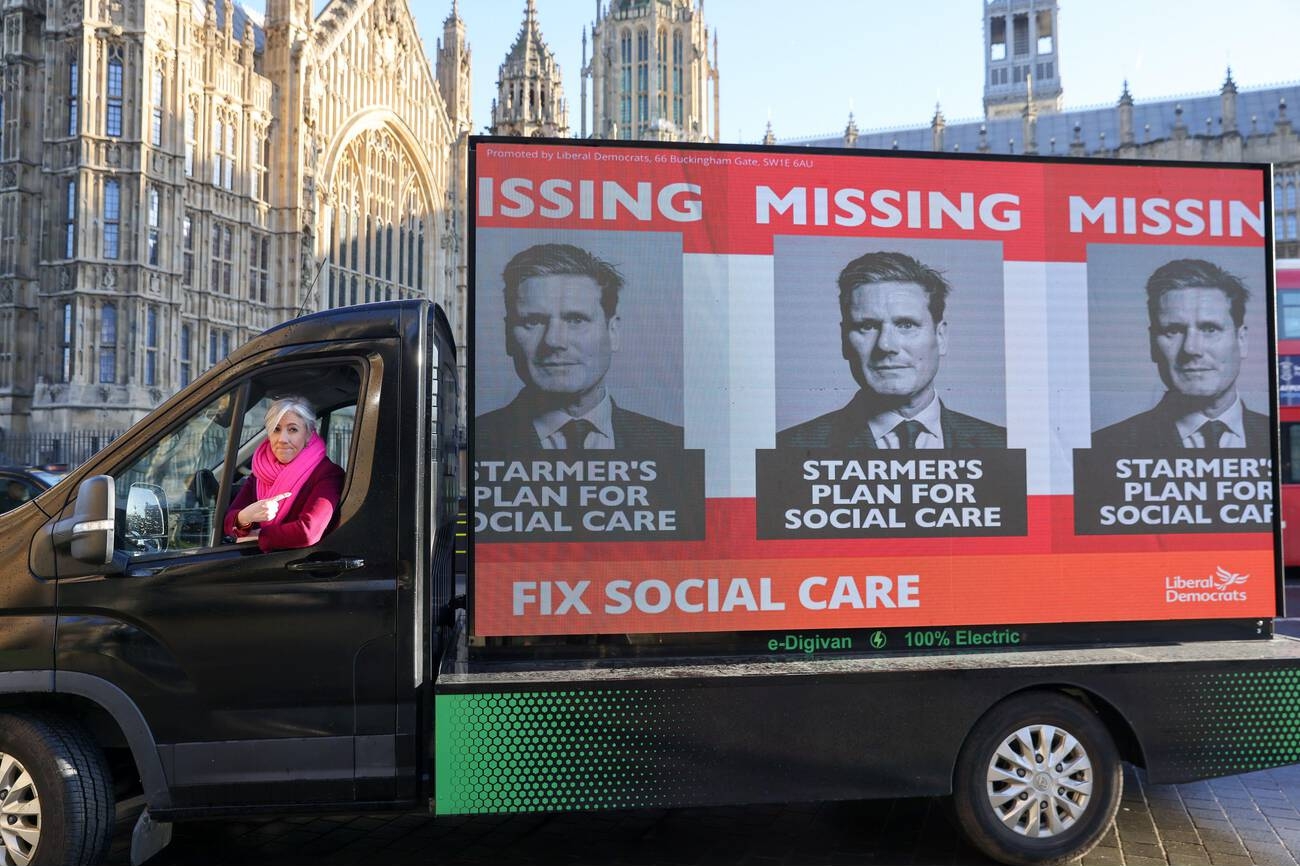Digital ID Card: Britons Oppose Labor’s Trick for Mass Surveillance and Digital Control
A new digital ID scheme aims to help prevent illegal working and make it easier for most people to

A new digital ID scheme aims to help prevent illegal working and make it easier for most people to use important government services. Soon, employers will require a digital ID for Right to Work checks. All UK citizens and legal residents will have access to the scheme. The goal is to save time by replacing slow, paper-based identity checks.
Over time, the rollout is expected to make applying for services like driving licenses, childcare, and welfare easier, as well as accessing tax records. People will need to keep the new digital ID on their phones, similar to how many already use the NHS App or contactless payments. While carrying the ID is not required, having a digital ID will be necessary to prove your Right to Work.
Mass Surveillance and Digital Control: No to Digital ID Card
Prime Minister Keir Starmer said the new ‘Brit Cards’ would make it harder to work illegally and help secure the borders. However, the announcement quickly faced criticism, with concerns raised about mass surveillance, digital control, hacking risks, and some calling it a ‘dystopian nightmare.’
Some critics say they will switch to basic phones like the Nokia 3310 to avoid using a Digital ID. Over 2.4 million people have signed a petition on the UK Parliament website against digital ID cards. Petitions with more than 100,000 signatures are debated in the House of Commons. The petition asks the government not to introduce digital ID cards, arguing it would lead to mass surveillance and digital control. Many people believe that the government should not force anyone to register with a state-controlled ID system and oppose creating a national ID system for this reason.
Public Opposition to Digital ID Card Scheme: Statistics Show
Public support for digital IDs dropped sharply after Keir Starmer announced plans to introduce them. Net support fell from 35% earlier in the summer to -14% after the announcement, according to More in Common polling. The results suggest the proposal has lost ground due to its link with an unpopular government. In June, 53% of voters supported digital ID cards for all Britons.
These figures show that the prime minister is struggling to gain public support for his policies and leadership. His approval ratings are at a historic low. A recent poll found he is now the most unpopular prime minister on record. The Ipsos poll showed 13% of voters were satisfied with Starmer, while 19% expressed opposition. Civil rights groups have long opposed ID card schemes, arguing they violate privacy. Dissatisfaction with the Labor Party reached 79%, the lowest rating for any prime minister since 1977, even lower than previous lows for Rishi Sunak and John Major.
Opponents and Advocates Both Worry about Labor’s New Plan
Starmer outlined plans to roll out a national digital ID scheme on Friday, stating it presented an “enormous opportunity” for the UK that would “make it tougher to work illegally in this country.” Following Starmer’s announcement over the weekend, 31% of people said they were supportive of the Scheme, with 45% expressing opposition. Of those, 32% showed their strong opposition. More than 2.6 million people have signed a petition against the introduction of the IDs.
Advocates of a national digital ID scheme feel frustrated at the way the Labor Party presented the policy. They believe that it may never be implemented now. More in Common’s polling suggests public dissatisfaction with the government is behind the collapse in support. It found that 58% of those who thought Starmer was doing a bad job as prime minister opposed digital IDs. At the same time, only 20% supported them. Among those who thought Starmer was doing a good job, 71% supported digital IDs, while 14% opposed them.
Digital ID Card Limits Public Access: Critics Say
The plan has faced criticism, including a sand art piece by Fred Brown showing Keir Starmer as Big Brother from George Orwell’s 1984. Critics say the plan is overly bureaucratic and could allow for abuse and fraud. They point to ongoing issues with illegal working and modern slavery, and argue that having multiple government systems makes it harder for people to access important services.
The new plan also leaves out many people, including one in ten UK adults without a physical photo ID. As a result, they may struggle to prove their identity and access the necessary services. Conservative leader Kemi Badenoch said her party would oppose any government effort to make ID cards mandatory for law-abiding citizens.
Reform, Civil Liberties, and Conservatives Oppose Labor’s Plan
Reform UK leader Nigel Farage also criticized the scheme, calling it ‘an anti-British card.’ He argued that the Labor government’s plan to require digital ID cards for all adults would not stop illegal immigration but would give the state more control over British citizens.
Civil liberties groups warn that even a limited digital ID could lead to a more intrusive system, putting privacy, data security, and personal freedom at risk. Big Brother Watch and seven other organizations have written to the prime minister, urging him to drop the plan because they believe it will push unauthorized migrants further out of reach.
Other prominent critics include the former Conservative cabinet minister David Davis, who campaigned against Labor’s ID card scheme in the 2000s. He said, “No system is immune to failure,” and warned that governments and tech companies have repeatedly failed to protect people’s data.









